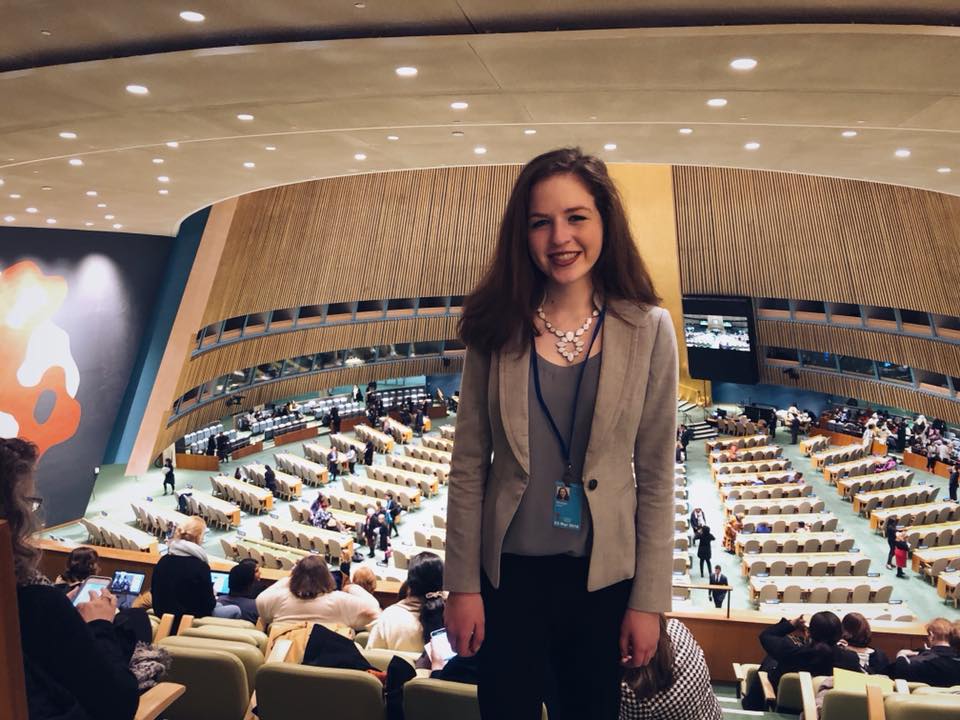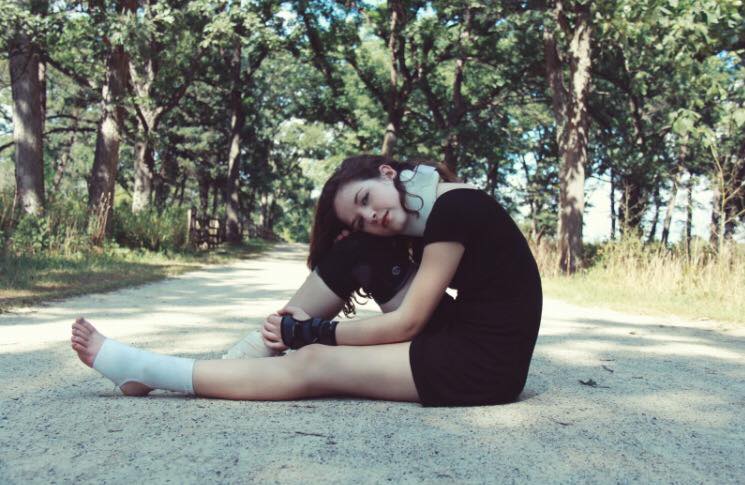In this Friends in the Fight Series, we feature amazing warriors from around the world who have experienced health setbacks. This month, we are featuring Katy Brennan.
Please tell us a bit about yourself (not related to your illness).
I am a high school senior living in Chicago, IL. Next year, I plan to double major in political science and journalism at a yet-to-be-decided university. In my free time, I work in advocacy among a variety of fields. I am a member of a climate change organization called SustainUS, I have worked in gender rights advocacy, and I am currently dedicating time to disability rights advocacy and empowerment at Diversability.
I have a passion for journalism, so a lot of my free time (outside of these organizations plus clubs and school) is spent writing articles and occasionally poetry. I am a regular contributor to NYAToday, and I have written for The Mighty, Al Jazeera, and more!
What is your illness? When did you find out?
My main illness is Ehlers Danlos Syndrome. I was diagnosed my freshman year after two shoulder surgeries and a knee dislocation. It sort of spiraled from there as I began to experience stroke-like symptoms, an inability to eat/drink, and fainting spells. I have since been diagnosed with hemiplegic migraines, celiac disease, and POTS as well.
What was the first thing you did after you were diagnosed?
I remember that my first reaction was to text some of my closest friends. I later came to regret that due to some rumors that spread, but I definitely reached out to my network first. I remembered not being all that surprised as I had heard of EDS before, but I definitely don’t think that I expected the symptoms to spiral out of control like they did.
What were your biggest fears? What challenges did you experience?
My biggest fear initially was for my future. For a while, it didn’t seem as if it would be feasible to go to college or pursue a full time career. I really had to spend a lot of my time reevaluating where I was going in life and what careers would be accessible to my new needs. Through a combination of getting my symptoms under control through proper care and discovering writing, I was able to stabilize my symptoms for the most part to the point that I can attend a full-time university next year away from home.
My biggest fear initially was for my future.
How did you overcome these challenges?
My catharsis during this time was writing. Six months after diagnosis, I was still facing new symptoms, uneducated doctors, and rumors spread around my grade about my illness not being real. This all collectively led to essentially an identity crisis.
I no longer knew who to trust, what groups I identified with, or what my plan was moving forward. I ended up stumbling across a site called The Mighty in one of my Facebook support groups for EDS and submitted a quick article. It was published within a day, and I was truly hooked. It quickly spiraled from 1 to 10 to 40 articles. Through this, I met hundreds of people with similar experiences to my own and was able to rebuild my network. I got involved in advocacy groups and found my voice again. I truly figured out who I was again through writing.

How did your friends and family help you?
Friends have felt like a revolving door over the past few years. My friends prior to diagnosis decided one day that my disease was too rare and invisible to be real and began to spread rumors around my grade that I was “faking it”.
I was absolutely mortified and isolated, and it took me a while to find my people again.
Since then, I’ve had profoundly supportive friends who have photographed me, shared my writing, or just sent that “how are you” text. Yet, I’ve also had some who have shifted from supportive to spreading those same rumors. Still, joining clubs at school and finding community in those allowed me to rebuild my support system at school.
Outside of school, a lot of my biggest supporters have been my families and fellow spoonies. As I said, writing connected me with hundreds of others with stories just like mine, and I have definitely relied on these connections through every up and down.
My family has been huge as well. My mom has been at every doctor and has educated herself on my conditions to the point that she knows them better than most doctors. My little brother has always been a sounding board and thumbs up from the back of every speech given or article published.
Countless other family members have supported me like this as well. It’s a bit nontraditional for a high schooler to look for support in these places rather than at school, but it has worked for me, and I would encourage everyone else to look in those “non traditional” spaces for support.
What’s your best advice for fellow Friend in the Fight?
My best advice to a fellow Friend in the Fight would be to find your niche. For me, that was writing, but for others it may be music, art, or a variety of other activities. It allowed me to express myself through every up and down, and feel like I was not only speaking up for myself but others as well. This is really critical in finding support in my opinion. If you can feel as if you fit in in a situation, you’ll be more comfortable to reach out for support, tell your story, and find others who will stand with you no matter where your health takes you.
Want to connect with Katy?
Instagram: @katy.brennan
You can find me on Facebook as well as Katy Brennan, and I don’t really use my Twitter but you can tag me at @katy.brennan7 if you’d like to tag me.
Connect with our community and share with us your story. Join us in our Friends in the Fight group.

